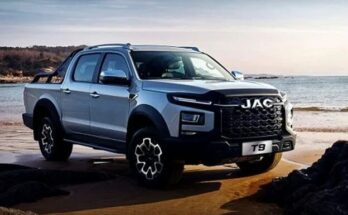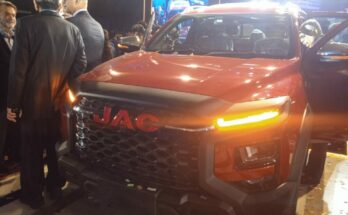Chinese automaker JAC has begun delivering electric vehicles equipped with sodium-ion batteries in China, marking the official market entry of EVs equipped with the new power batteries.
The sodium-ion batteries are deployed in the Yiwei 3 hatchback. Yiwei is a new brand of JAC that focuses on the EV market. The batteries were developed by HiNa Battery, a company affiliated with the Institute of Physics of the Chinese Academy of Sciences. The local government purchased the 10 vehicles in the first batch. JAC will soon produce more units of the same model, the company said.
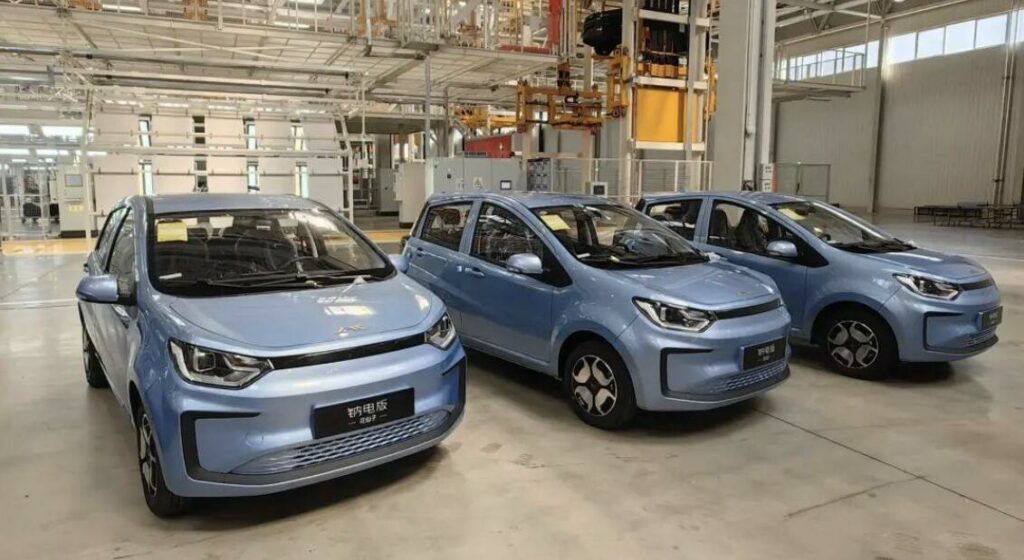
According to Li Shujun, general manager of HiNa Battery, sodium-ion batteries have substantial cost, safety, and sustainability advantages over conventional lithium-ion batteries. He said the energy density of the batteries in the supplied cars is between 140 and 160 watt-hours per kilogram, but with advancements in materials science and battery design, that number will rise to 160 to 180 watt-hours per kilogram in two years.
Related: BYD to Build 30 GWh Sodium Battery Plant
Each battery cell has a capacity of 12Ah and uses a copper base layer-like oxide technology route, which has advantages in safety, energy density, low-temperature performance, and cycle life. The sodium-ion battery-equipped Yiwei 3 model has a battery pack capacity of 23.2 kWh and a CLTC range of 230 km, with an electricity consumption of about 10 kWh per 100 km.
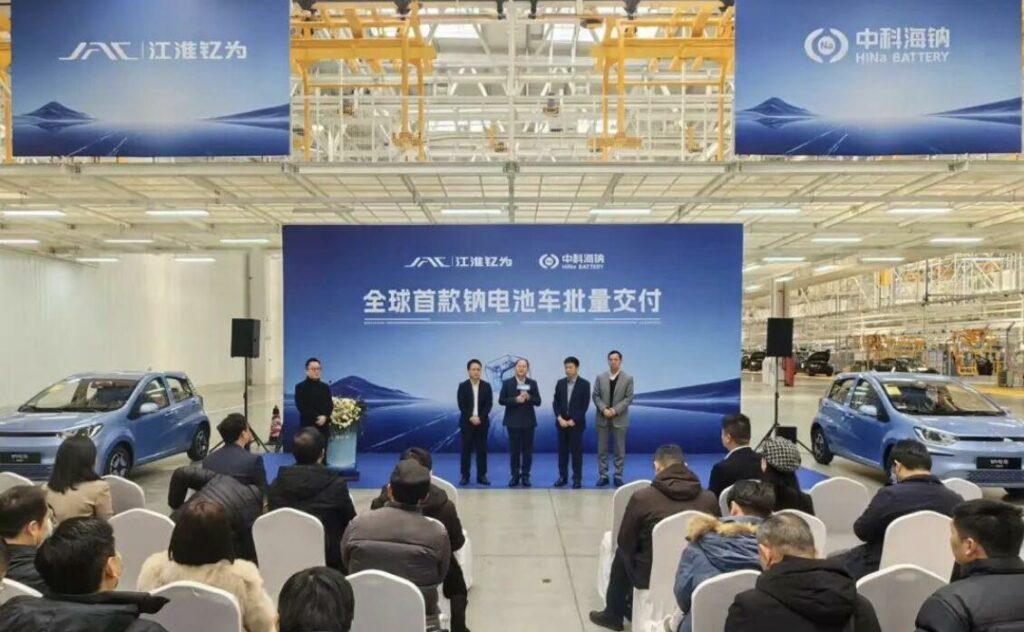
Compared to lithium iron phosphate (LFP) batteries, sodium-ion batteries have better low-temperature performance, with over 92% capacity retention at -20°C. Even in extremely cold regions, the model’s winter range degradation is negligible, according to the company. The battery also supports faster charging speeds, going from 10 to 80% in 20 minutes and from 30 to 80% in 15 minutes, double the charging speed of current mainstream LFP batteries.
Related: Geely’s Zeekr Launches 800V ‘Golden Brick’ LFP Battery
Xia Shunli, deputy chief engineer of JAC Group, while speaking at the delivery ceremony, said the industrialization of sodium-ion batteries will play a key role in safeguarding China’s resource security in the development of new energy vehicles. The scarcity and cost of lithium have been a long-standing challenge in the battery industry.
“China produces about 70% of the world’s lithium-ion batteries while the country itself owns only 6% of the world’s lithium resources.”
China currently imports 70 percent of its lithium, and the development of the nation’s EV industry may be affected due to the limited supply of the metal, according to a previous report by Guotai Junan Securities. Companies around the world have spent years looking for an alternative, and sodium-ion battery technology has emerged as one of the most promising candidates, said Li Shunjun.
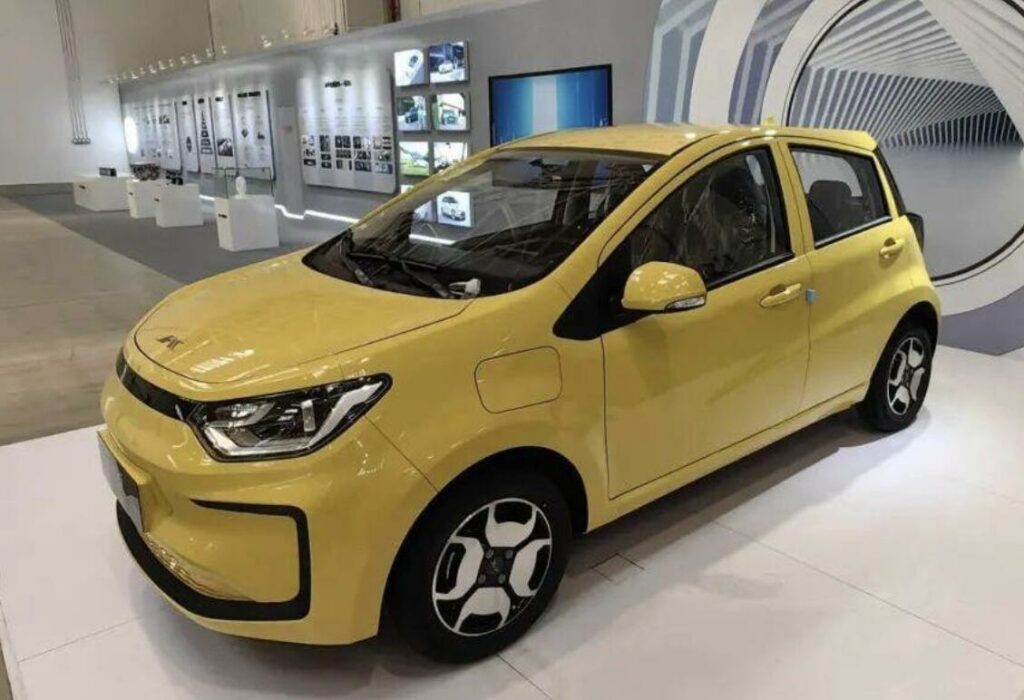

A computer animation professional with over 23 years of industry experience having served in leading organizations, TV channels & production facilities in Pakistan. An avid car enthusiast and petrolhead with an affection to deliver quality content to help shape opinions. Formerly written for PakWheels as well as major publications including Dawn. Founder of CarSpiritPK.com


